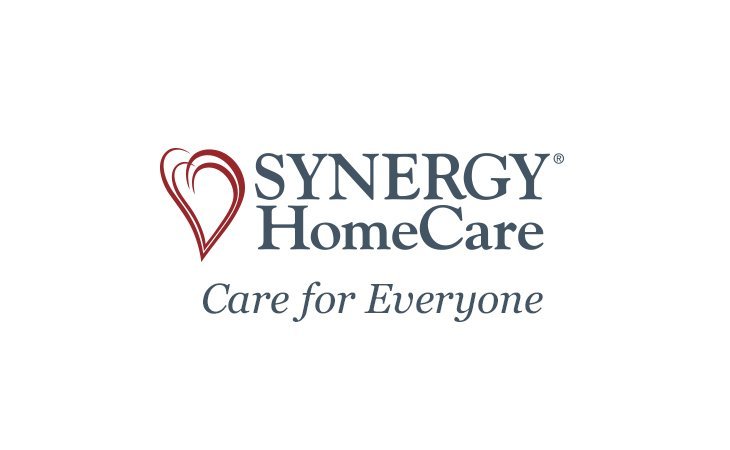
The job of a hospice nurse can be extremely rewarding. You will learn about the work of a medical professional, as well as work with families to provide the best care possible. However, you need to be ready for the emotional and physical demands of the job.
Both in and outside the hospital, hospice workers work with patients. They may help patients bathe, eat, and use medical equipment. They may be asked to lift patients and stand for long periods. They might be required to travel long distances to visit the patient, as well as work weekends and nights. They must also inform loved ones that the patient has died.
For most jobs in the hospice industry, workers must have a bachelor's in addition to experience. They may also need to complete an education or training program. They must also comply with hospice laws.

The hospice nurse works with the other members of their team to create care plans. They are also responsible for making assessments and suggesting other ways of caring. They may also be responsible after six months for visiting hospice patients in person. They will collaborate with the patient's physician to determine if the patient should continue to receive hospice services.
Hospice social workers are advocates for patients, helping them understand end-of-life plans, managing stress, and communicating their needs. They may also conduct support groups and seminars. They may also help patients and families cope with grief and other crises. They are also called sounding board. They might also be able to answer phone calls or welcome visitors at the hospice's reception desk. They could also be involved in marketing and community outreach.
The hospice financial manager is responsible for billing Medicare for hospice services. They also manage hospice budgets as well as charitable giving. They might also be responsible for processing insurance payments. They may also help prepare patients' health records for regulatory purposes. They may also assist in the development of patient care plans.
Other occupations that are available in hospice personal services include social service assistants or clergy. These workers assist patients with their everyday tasks, such as bathing, eating, and dressing. They assist patients with exercise and hobbies. They might also be able to help patients manage their medications.

Families may also need support from hospice social workers. These workers often lead support groups and workshops, help patients and families to understand the process of end-of-life planning, and act as professional friends to patients. New York State requires them to be registered. They may also serve as a liaison between patients and doctors.
Volunteers can often be hired on a temporary basis to assist with projects. They are often not trained. They can contribute to high turnover rates. They might also feel stress if they're not accepted by a paid worker. They should also register with New York State Board of Hospice Volunteers.
FAQ
What are the different health care services?
Patients need to be aware that they have 24/7 access to high-quality healthcare. We can help you, whether you have an urgent need or a routine checkup.
There are many options for appointments. These include walk-in clinics and same-day surgery. We also offer emergency department visits and outpatient procedures. If you live far away from our clinic, we can also provide home health care visits. You don't have to come into our office if you don’t feel at ease. We'll make sure that you receive prompt care at the local hospital.
Our team includes pharmacists, dentists and other professionals committed to excellent patient service. We strive to make every visit as simple and painless for our patients.
Why do we need medical systems?
In developing countries, many people lack basic medical care. Many people who live in these areas are affected by infectious diseases such as malaria and tuberculosis, which can lead to premature death.
The vast majority of people in developed nations have regular checkups. Minor illnesses are usually treated by their general practitioner. Yet, many people suffer from chronic diseases such as diabetes and heart disease.
What can I do to ensure my family receives quality health care services?
Most likely, your state has a department or health that ensures everyone has affordable healthcare. Some states have programs that provide coverage for low-income families who have children. To find out more about these programs, contact your state's Department of Health.
What is my role within public health?
You can help protect your own health and the health of others by taking part in prevention efforts. Public health can be improved by reporting injuries and illnesses to health professionals, so that they can prevent further cases.
What should I know regarding immunizations
Immunization refers to the stimulation of an immune response to vaccines. Immunization is the process by which the body makes antibodies (immunoglobulins), that protect against infection.
Statistics
- The healthcare sector is one of the largest and most complex in the U.S. economy, accounting for 18% of gross domestic product (GDP) in 2020.1 (investopedia.com)
- Over the first twenty-five years of this transformation, government contributions to healthcare expenditures have dropped from 36% to 15%, with the burden of managing this decrease falling largely on patients. (en.wikipedia.org)
- For instance, Chinese hospital charges tend toward 50% for drugs, another major percentage for equipment, and a small percentage for healthcare professional fees. (en.wikipedia.org)
- The health share of the Gross domestic product (GDP) is expected to continue its upward trend, reaching 19.9 percent of GDP by 2025. (en.wikipedia.org)
- Foreign investment in hospitals—up to 70% ownership- has been encouraged as an incentive for privatization. (en.wikipedia.org)
External Links
How To
How do I find home care services
Home care facilities provide assistance for people who require it. Home care facilities are available for elderly and disabled persons, as well as those with chronic diseases such Alzheimer's. These facilities offer services such as personal hygiene, meal preparation and laundry, cleaning, medication reminders, transportation, and so on. They often work in close collaboration with social workers, medical professionals, and rehabilitation specialists.
It is best to get recommendations from your friends, family, and local businesses. Once you have identified one or more providers, you should ask about their qualifications as well as their experience. Providers should be flexible in their hours so they can fit into your busy schedule. Also, make sure they offer emergency assistance 24/7.
Your doctor or nurse might be able to refer you. You can search online for "home care" or "nursing homes" if you aren't sure where to look. You can use websites like Yelp and Angie's List or HealthGrades to compare nursing homes.
For further information, you may call the Area Agency on Aging (AAA), or Visiting Nurse Service Associations (VNA). These agencies will have a list that lists local agencies that provide home care services.
Many home care agencies charge high rates for their services. This makes it important to find the right agency. In fact, some agencies charge up to 100% of a patient's income! To avoid this problem, you should be sure to choose an agency that has been rated highly by the Better Business Bureau. Get references from former clients.
Some states even require home care agencies to register with the State Department of Social Services. You can check with your local government to find out which agency registration requirements apply.
When choosing a home-care agency, there are several things you should keep in mind:
-
Be cautious of companies that require you to pay upfront in order to receive services.
-
It is important to find a trustworthy and established company.
-
You should have proof of insurance, especially if your payment is out of pocket.
-
Make sure that the state licenses the agency you hire.
-
Ask for a written contract detailing all costs involved in hiring the agency.
-
Verify that follow-up visits are provided by the agency after discharge.
-
Ask for a list with certifications and credentials.
-
Sign anything without first reading it.
-
Read any fine print carefully.
-
Verify that the agency is insured and bonded.
-
Ask how long this agency has been around.
-
Verify that your agency is licensed by the State Department of Social Welfare.
-
Find out if complaints have been filed against the agency.
-
Contact your local government office that regulates home-care agencies.
-
Make sure that you are able to get answers from the staff member who answers the phone about home care.
-
Contact your attorney or accountant to ensure you understand the tax implications of using home care.
-
Always request at least three bids from each agency that you contact for home care.
-
Choose the lowest bid, but do not settle for less than $30 per hour.
-
It is possible that you will need to visit more than one agency for home care each day.
-
When signing contracts, read everything carefully.